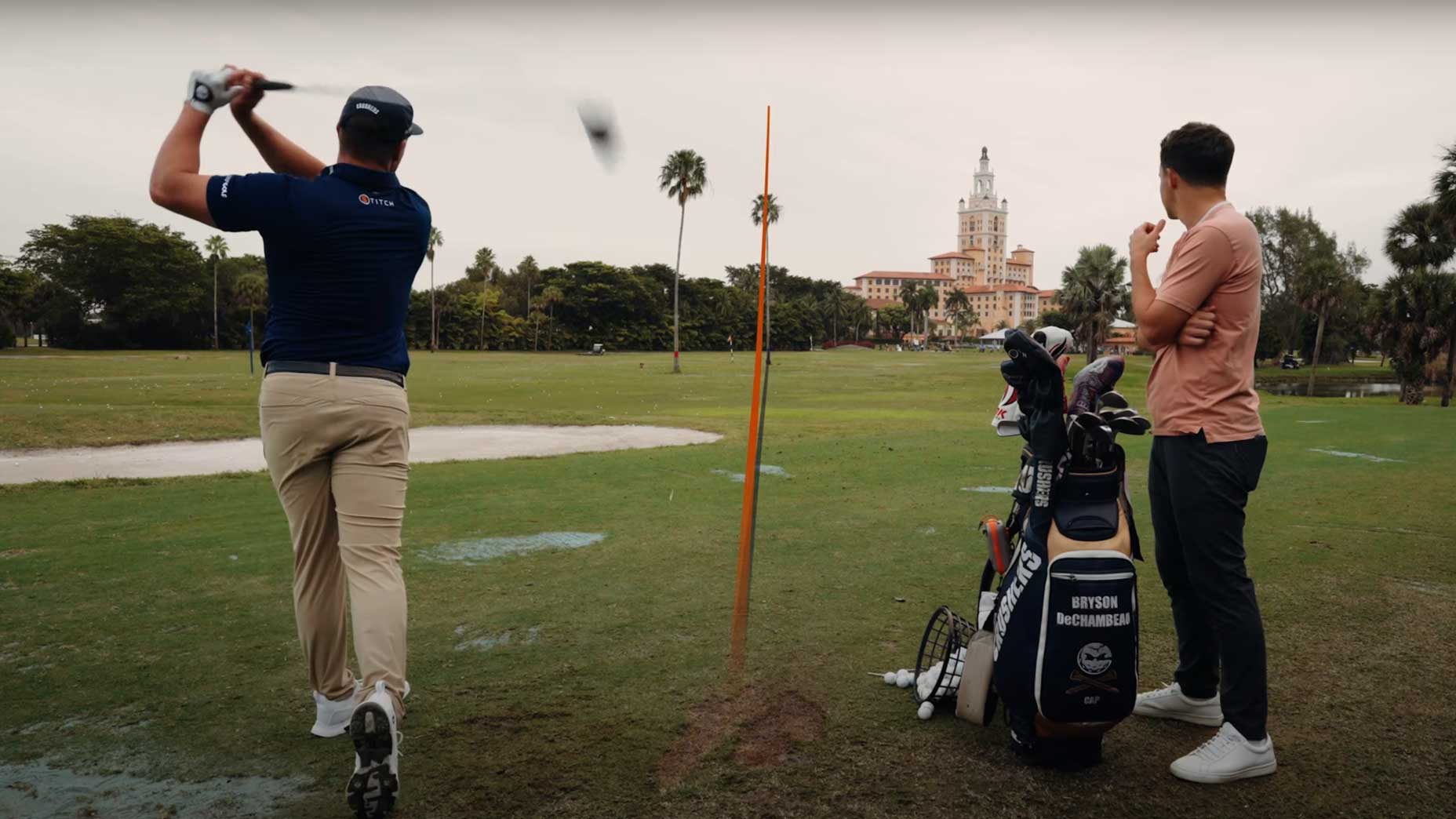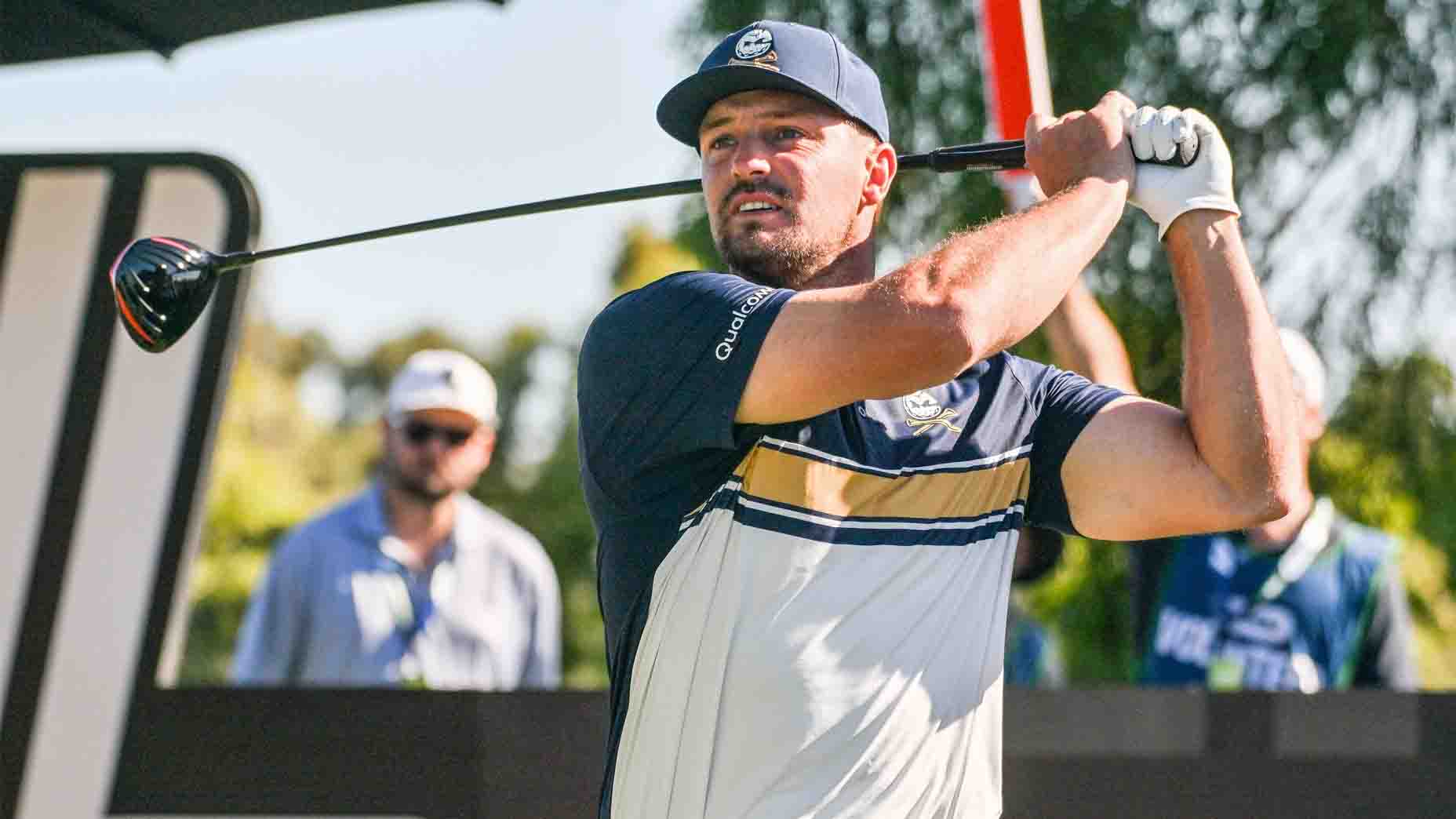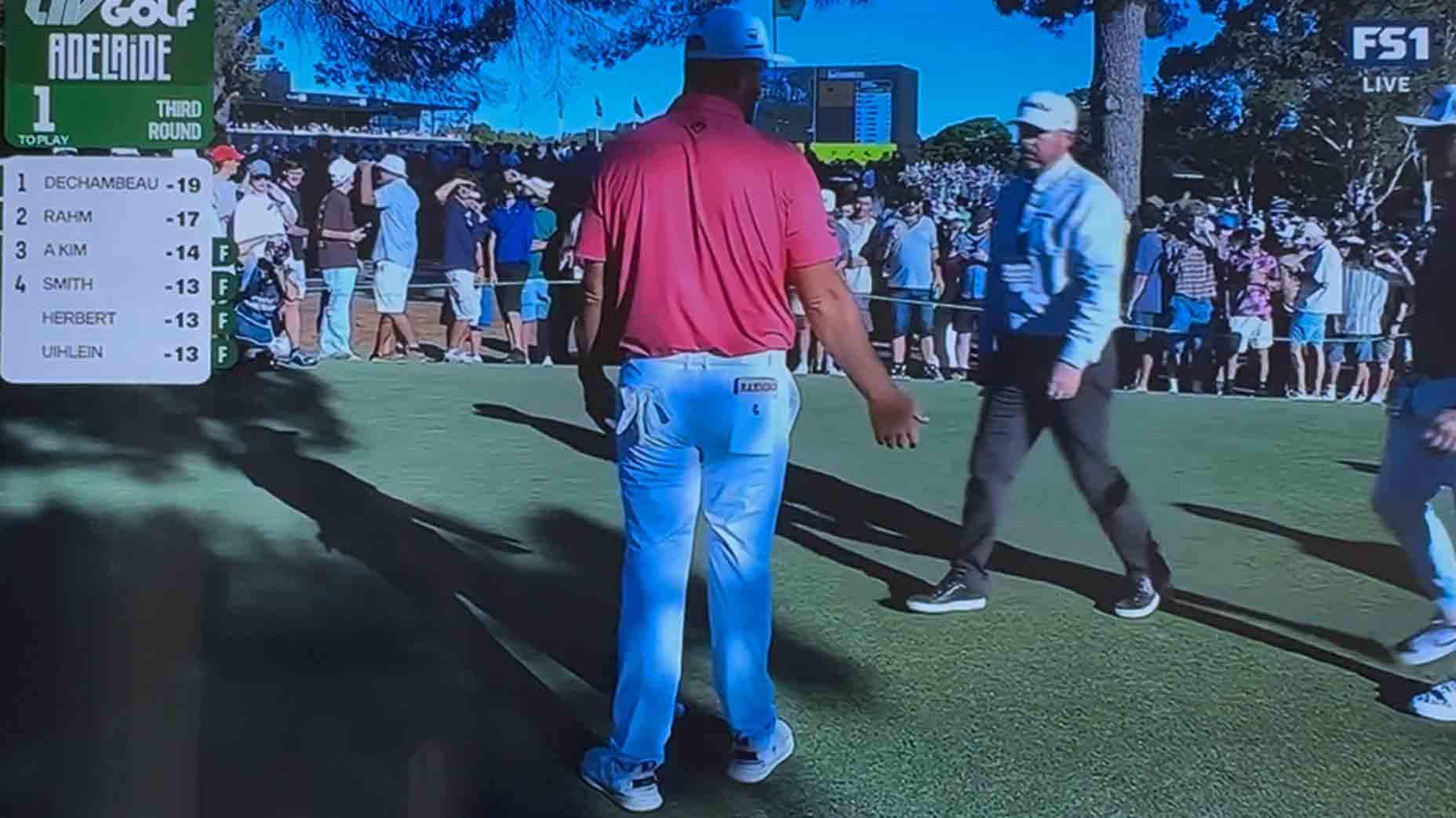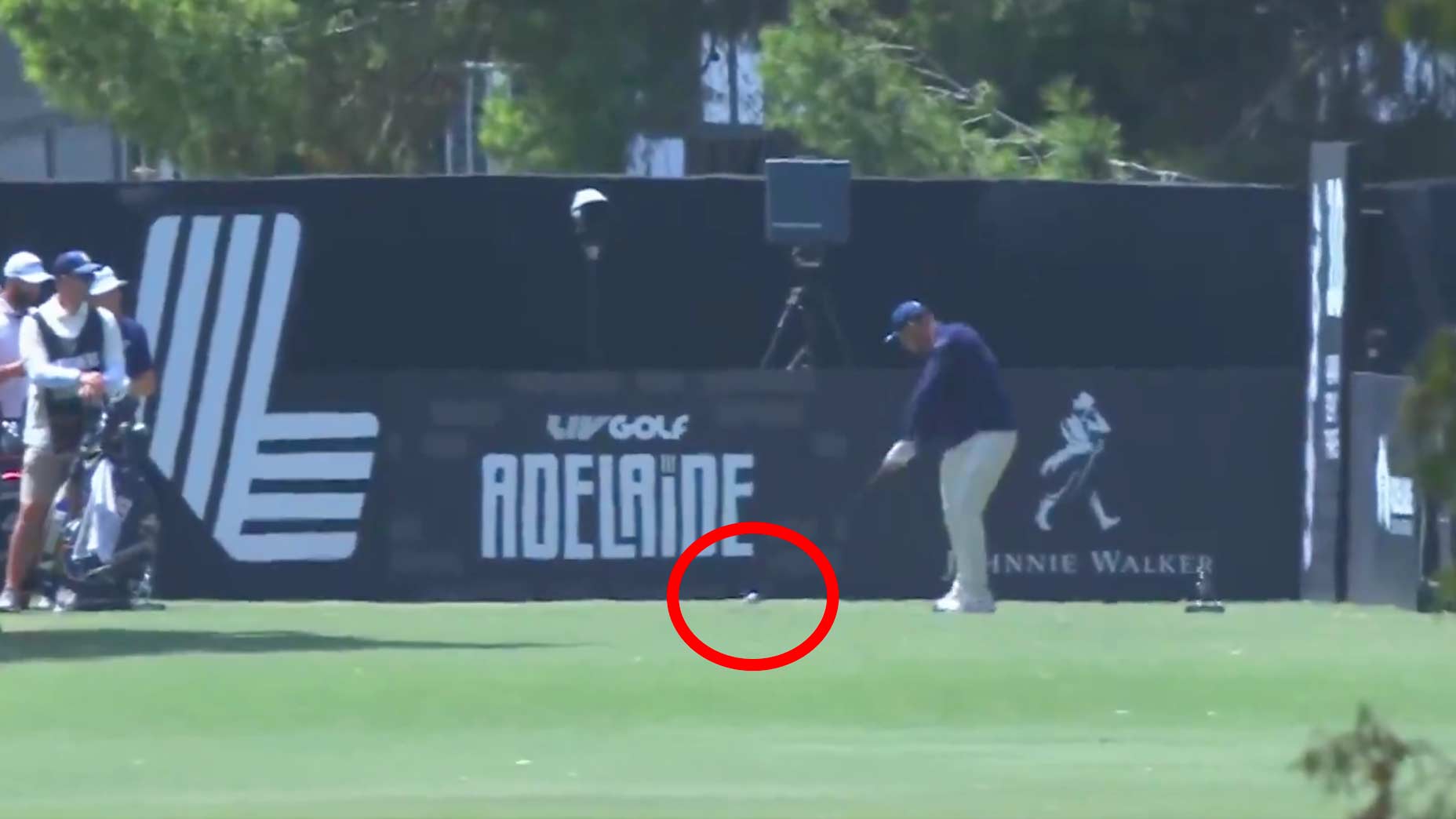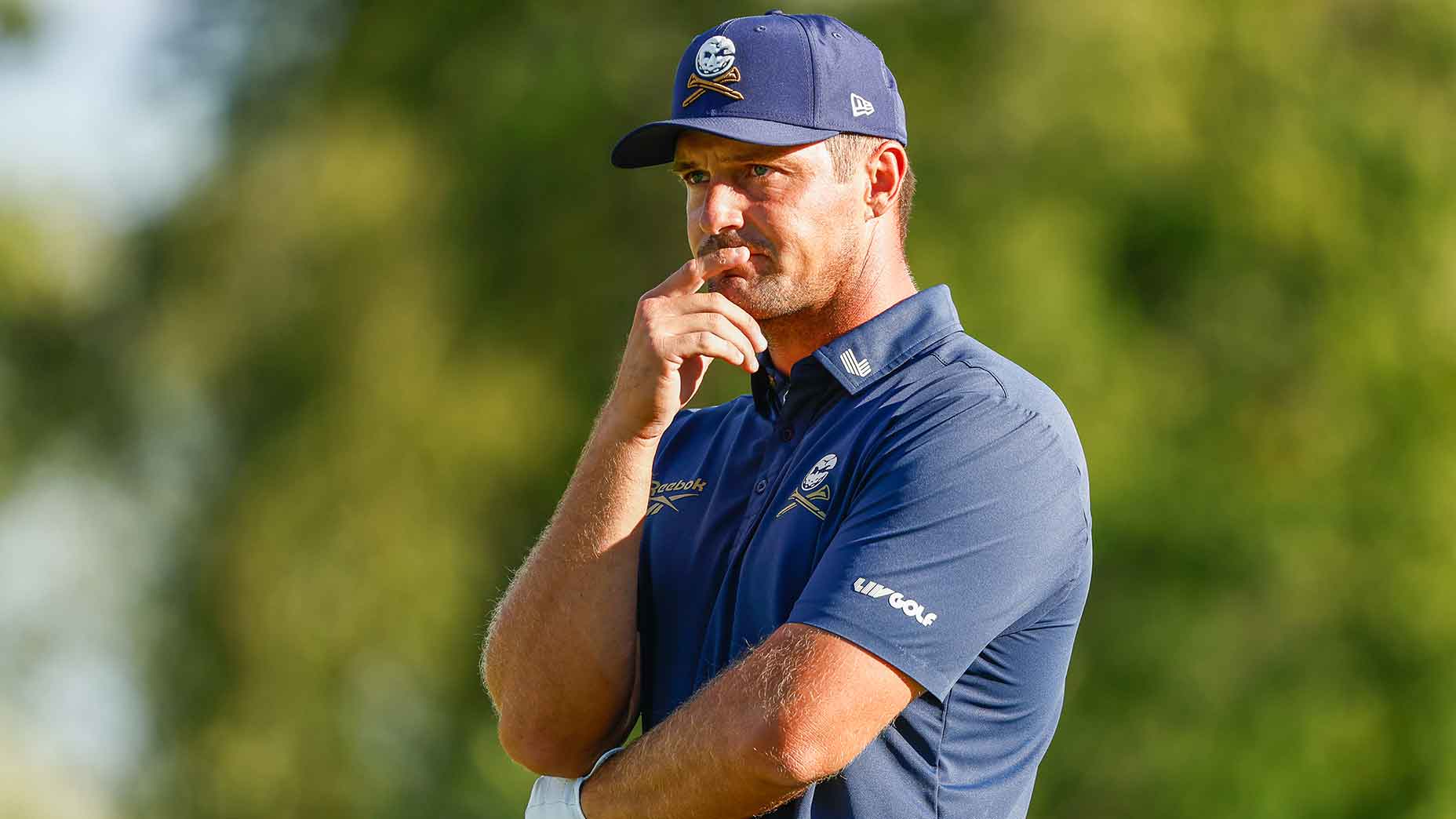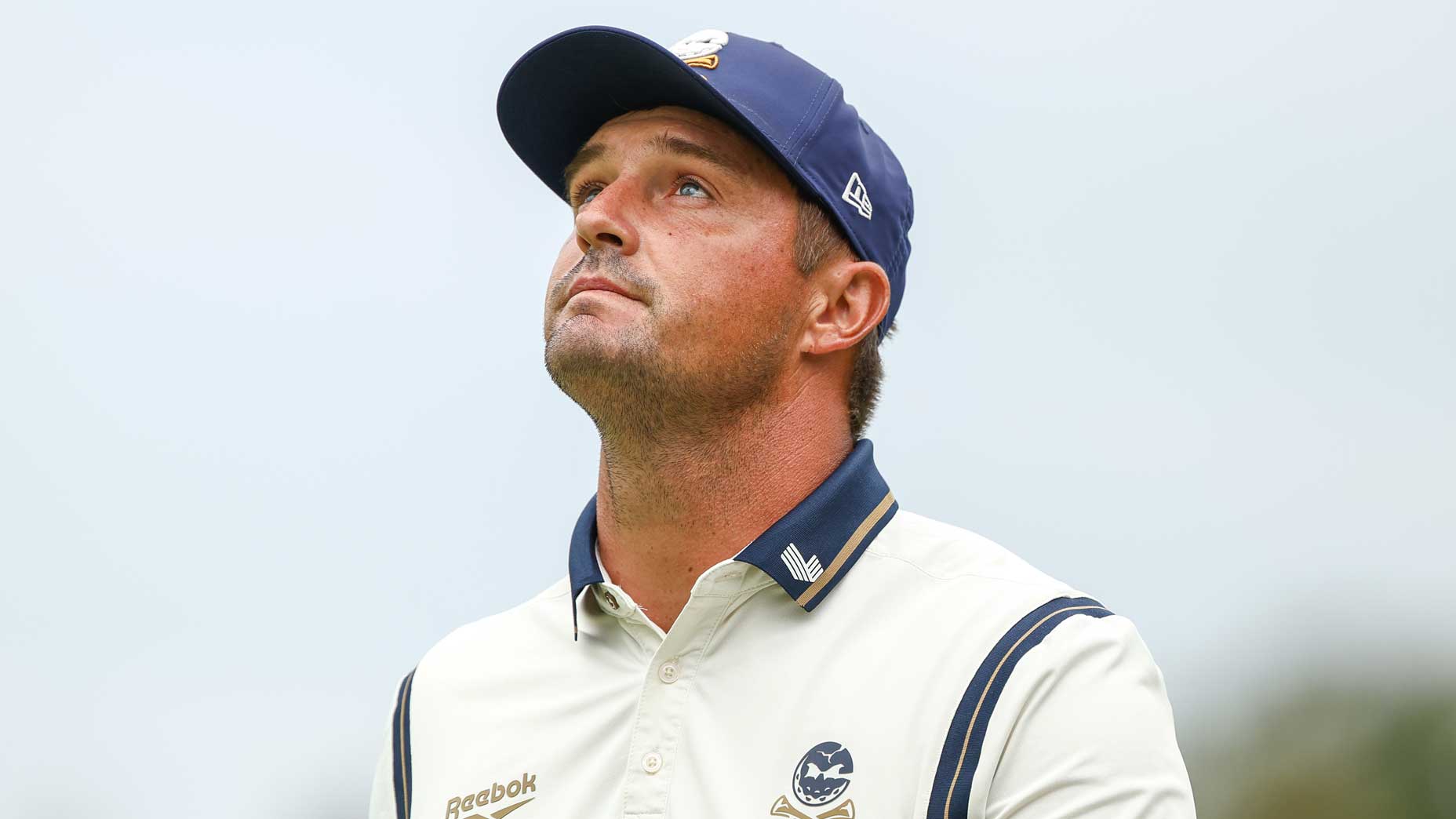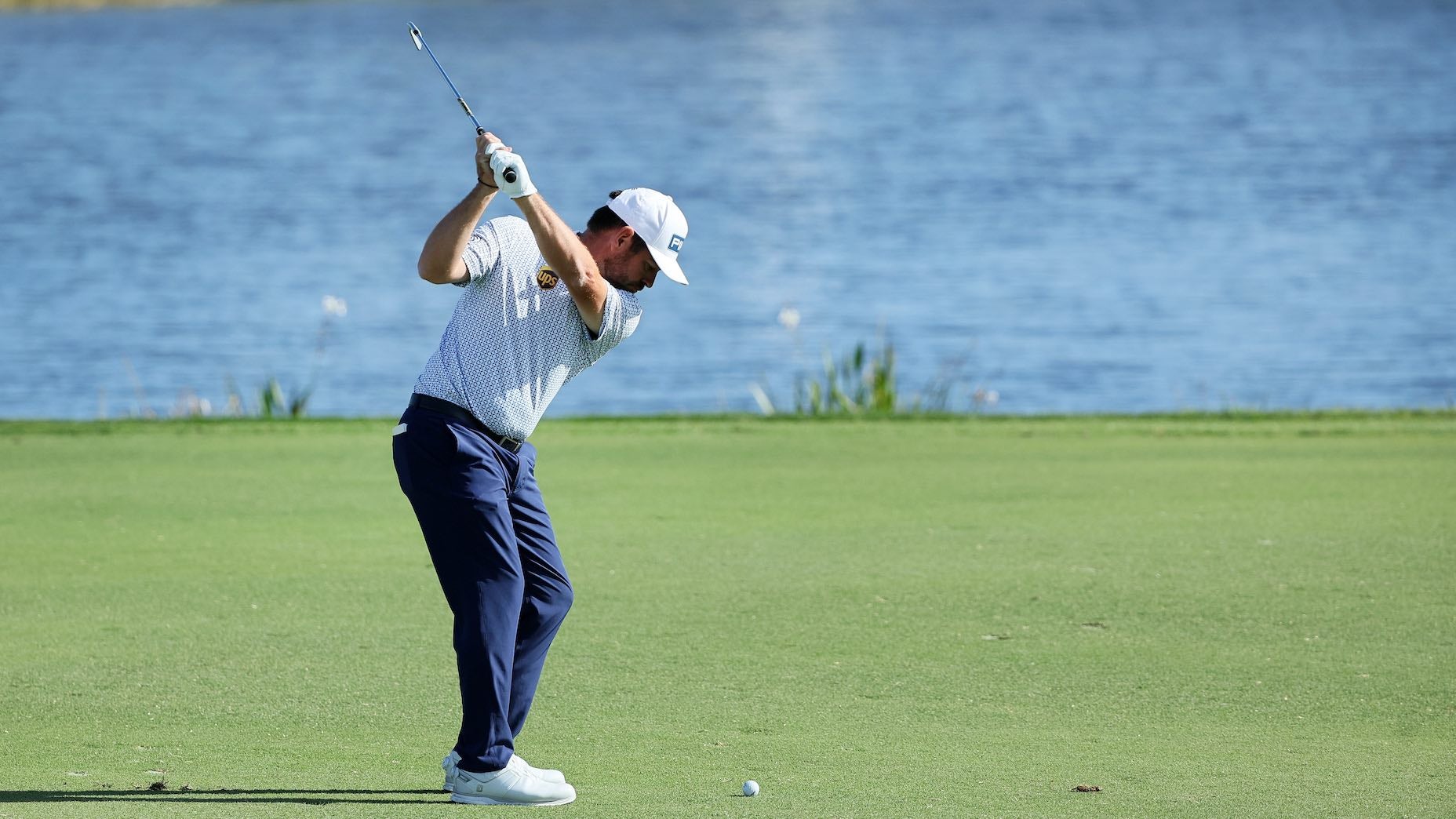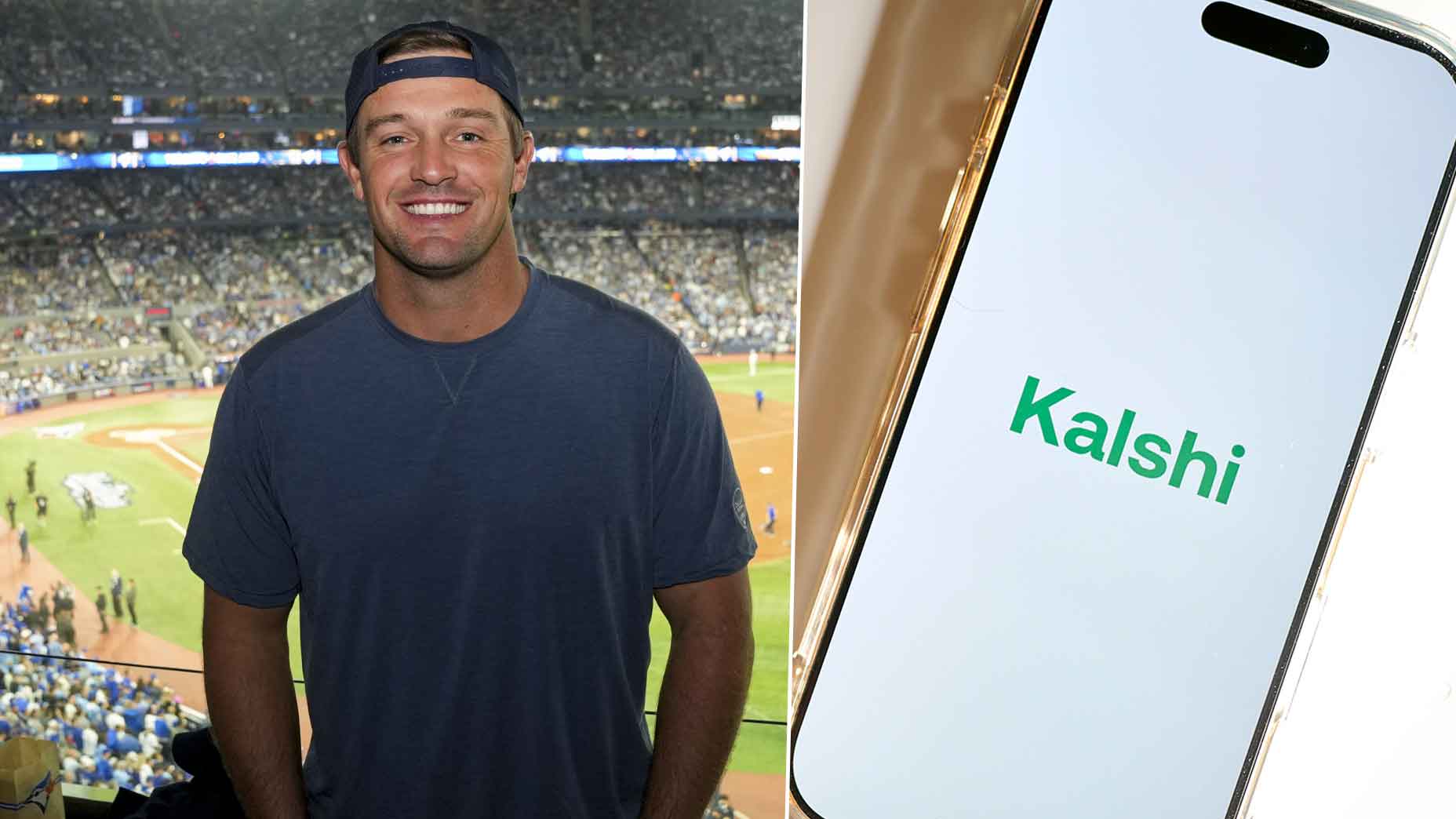One of the most remarkable things about the world’s top golfers is that they think about play — and practice — in remarkably different ways. Take Scottie Scheffler, winner of this year’s Players, Masters and [checks schedule] basically everything else. When Scottie’s at home during off-weeks it sounds like he plays games against other Dallas-area locals nearly every day.
But Bryson DeChambeau? He rarely plays at all. Unless he’s at a tournament or filming a video for his increasingly popular YouTube channel, he’s generally at home on the range by himself, working on what he likes to refer to as “repeating motion.”
Last week DeChambeau became a U.S. Open champion for the second time. He also finished second at the PGA Championship and T6 at the Masters. The beauty of golf? There’s more than one way to get it done.
Before the start of major championship season, DeChambeau joined our crew to film an episode of “Warming Up,” (on YouTube here) where he walked me through his pre-round prep and spilled some secrets on how he thinks about practice and tournament golf.
Here are 10 things I learned from the session, which you can watch on YouTube HERE. Otherwise, read on!
1. He doesn’t work out before rounds.
Had our range session come the Sunday of a major championship, what would DeChambeau have done beforehand? Surprisingly little, it turns out.
“I woke up. I really don’t do much,” he said.
Unlike other pros, who spend hours activating in the fitness trailer before their rounds, DeChambeau opts to work out post-round instead. He’ll hit the gym around 6 or 7 p.m., depending on his playing schedule. But before a round he leans on “active motion” to warm up, which is a fancy way of saying he’ll start with little chip shots and work his way up from there.
2. He works the clock system.
DeChambeau thinks of his arms and hands as the hour hand on a clock; that’s one of the ways he makes his swing repeatable. He also builds up from small swings to big. As he starts with contact and gets a specific feel for the day he’ll take what are essentially half-swings, taking the club back to what feels like 9 o’clock (it ends up going a bit further) and following through to 3 o’clock.
Eventually he works his way to 10 o’clock — hands at shoulder height, roughly 75 percent — then 10:30, then full, which is something like 11 o’clock.
3. He has a simple way to think about contact.
If DeChambeau isn’t hitting it well? He goes back to the basics.
“Super simple: ball, divot,” he said. That’s his focus: proper contact. But if his contact is sketchy the simplest fix is just to adjust his ball placement. “If I’m hitting it thin I’ll usually move it up in my stance a little bit. If I’m chunking it, I’ll move it back in my stance just a little bit.”
That’s it!
“Very simple, nothing crazy. I don’t try to overcomplicate things, which is pretty unique for me,” he said.
4. He doesn’t vary his ball flights.
Plenty of pros I’ve talked to enjoy working the ball in different directions based on the shape of a hole or the location of a flag. Not DeChambeau.
“I try not to. I want to be a master of one,” he said. “There’s so much field, so much grass out there that I can pretty much hit the same shot over and over and over again and just be consistent with that.”
For DeChambeau that “same shot” is a little draw. He estimates the average curvature is some 10-12 yards; for a wedge it may be four or five yards while for driver it’s more like 20. He’s stuck with the draw over the years.
5. His most common miss is a chunk, but contact doesn’t stress him out.
I took a little turf to the face after he caught one short iron heavy. That’s his most common miss, he said: a chunk. But a couple fat shots on the range doesn’t stress him out. Missing left and right, on the other hand?
“If it starts curving too much one way, that’s when I get really stressed. That’s where you’ll see me hit golf balls for quite a while,” he said.
We have seen a lot of those marathon range sessions over the years. Now I better understand one reason why.
6. He “never” plays golf at home.
This was fascinating. While DeChambeau will use a grass range every day — not turf, he said, which can mess with angles of attack, etc. — he doesn’t often hit the course.
“Never,” he said. “Very rare. I’ll go out and play three holes every once in a while to make sure that nothing has gone crazy awry. But I focus on being able to repeat motion more consistently. To see if I can do it again and again and again at the same shot shape. That’s literally all that matters to me.”
I pointed out that while this makes some intuitive sense, it’s wildly different from the approach of nearly every other top pro I’ve talked to.
“I know, it’s wild. I think they like trying to shoot the lowest score. But my thought process is like, the lowest score is going to come about by the most consistent and repeatable shots. And if I can hit a shot again and again and again more often than other players I feel like I’m going to do better than other players.”
7. Still, he thinks it’s important to play golf to be good at golf.
If you’re looking to emulate DeChambeau’s approach, this bit’s important: He’s not suggesting you skip the course altogether. Not until you reach a tiny top percentile of golfing talent and under-pressure scoring ability.
“You need to play enough rounds of golf where you can go to the reds [forward tees], go to the blues [back tees], go to any tee position and shoot damn well under par,” he said. “Blues consistently under par. Reds close to 60 every time. And if you do that, you know how to strategize on the course with any situation that occurs.”
Why multiple tee boxes? From the forward tees you’ll be forced to squeeze driver onto super tight holes, you’ll hit wedges into par-3s and you’ll playing par-5s like par-4s. Back tees, meanwhile, will demand long irons on par-3s and test you on difficult par-4s. If you can get to that point, DeChambeau said, you can flip your focus to the range.
“And then over the course of time when you get good enough and you play enough tournament golf that you’re comfortable under pressure? Then repeating motion more than anyone else is really the key answer to getting better,” he said.
“I could be completely wrong. Everybody’s different, obviously. But that’s my formula for success — and I like it. It’s fun. Compared to wasting four hours of my day, shooting 65 and going oh, what does that mean? Nothing. That’s why most people gamble, but I’m not a gambler.”
My instinct is that he’s missing out. Then again, he’s the U.S. Open champ, so his is the instinct you may want to trust.
8. He’ll “calibrate” with different parts of the club face.
Want to find the center of the club face? It doesn’t hurt to test the other parts, just to see where they are. He swings one super inside-out and tries to hit it off the toe. It makes a clanky sound, hooks a little extra and falls out of the air. Later he hits one off the heel that spits out weak and right.
“So I start trying to hit it on different parts of the face to calibrate my brain of where the whole club is,” he said. “Which is crazy, people are like, ‘what are you talking about?’ I’m like, dude, I just want to know.”
He messes around with different points of contact and different shot shapes every single day, he said. But it’ll just be for a few shots and then he’ll return to that draw he’s trying to groove.
9. He thinks conditions can affect carry yardage more than you might think.
DeChambeau’s 5-wood flies 285, he said. His 3-wood flies 310. His driver? Further than that. But simple conditional changes like temperature can change those numbers by some five percent — which can translate to 15 yards or more at these distances.
There’s a reason DeChambeau has gotten involved with salty balls and protractors and spray bottles and more: He knows the little stuff makes a big difference.
10. He takes “one shot at a time” to the next level.
DeChambeau says he tries to ignore the situation completely. He tries to ignore the rest of the golf course completely. Hell, he’s not even really focused on the golf ball.
“Here’s the funny thing. Most people are like, oh, I’m looking at the golf ball and I’m focused on hitting the golf ball,” he said. “But I don’t even see the golf ball when I hit the shot. I’m literally feeling what my body is doing and just repeating that feeling every time. Peripherally I still see it, but I don’t focus on it.
“Growing up I’d hit golf balls with my eyes closed for quite a while just trying to ingrain motion. Repeating motion, motion, motion. That’s all I focused on. And it paid huge dividends because I was able to go inside whenever I got nervous and focus on executing the motion and not worry about the situation.”
11. …and there’s more!
The good news is that these 10 come from the first half of the video. DeChambeau talks diet, regret and growth. He hits one “hard” just for fun. He takes us to No. 16 at Augusta National. He quotes Vince Lombardi and Ben Hogan. Good news: You can watch the rest below.
